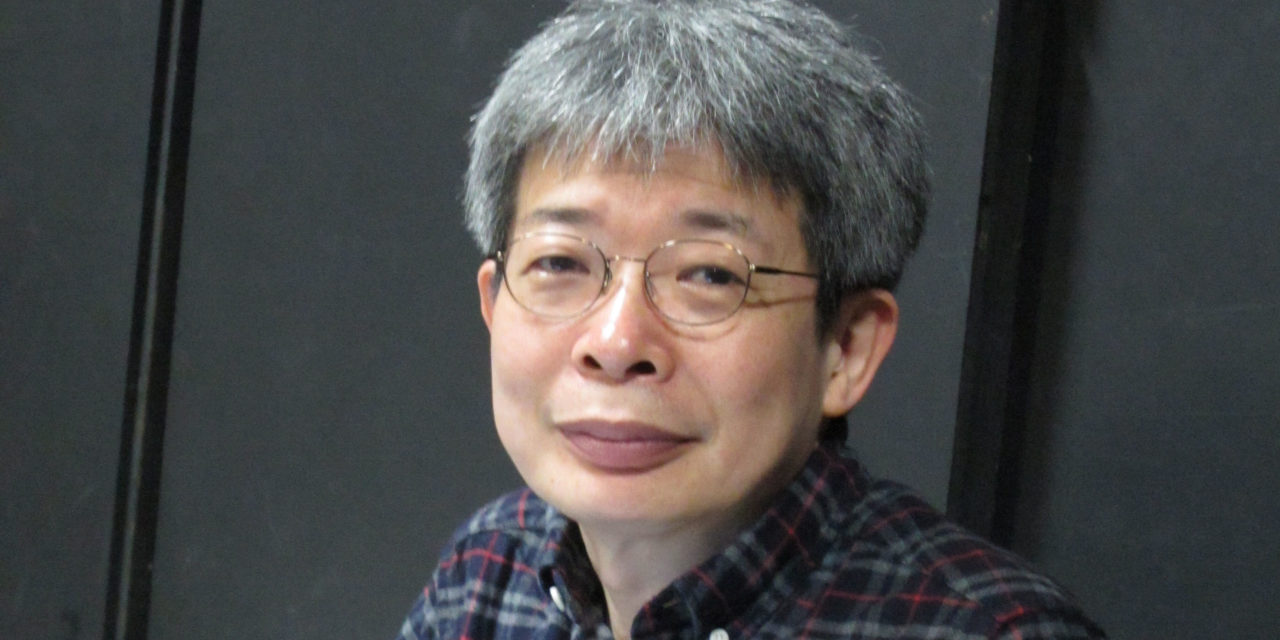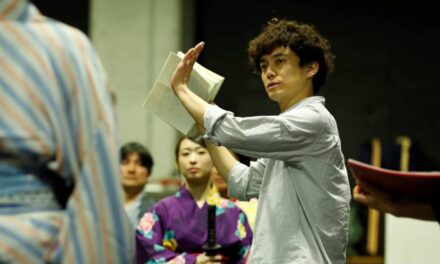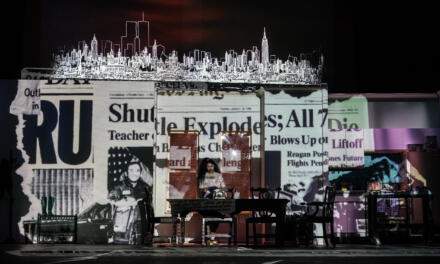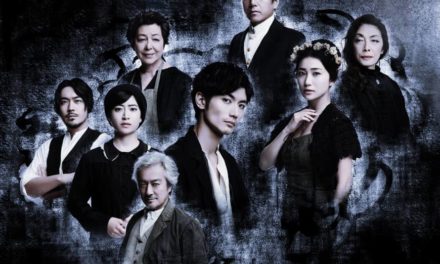Fifty-three-year-old Oriza Hirata unexpectedly arrived early for our 9 a.m. interview in a Tokyo family restaurant one recent Sunday morning. Not only that, but the famed playwright and director turned up alone without the squad of minders such people’s managers generally send along to stop them making headlines for reasons they wouldn’t like.
Though he’s a globe-trotting pillar of Japanese contemporary theater whose new opera Umi, Shizukana Umi (Calm Sea) — about the 2011 Fukushima nuclear disaster — played the Staatsoper in Hamburg to great acclaim earlier this year, this renowned workaholic is also a guest professor at various universities and a counselor for cultural policy on numerous regional government committees.
When we met, though, Hirata’s focus was firmly on Nippon Support Center, his new play set to premiere June 23 at the Kichijoji Theatre in western Tokyo.
Centered around the suburban Tokyo office of a nonprofit poverty-relief group, Hirata said this work had been a long time in the making.
“For the past decade, I’ve wanted to write about the growing poverty in Japan,” he said. “Then around 2008 my robot-human theater project (in which he has robots and humans acting and interacting on stage) began to flourish, so I had to postpone that idea.
“Now, though, poverty is far more commonplace here, so I decided not to write about it directly but about people helping those living in poverty.”
Pointing to how the great playwright Anton Chekhov often portrayed people caught up in the death throes of Tsarist Russia, Hirata said he, too, is drawn to write about ordinary citizens buffeted by the times.
“I aim to write about all the Japanese now suffering from the country’s slow decline — and to do so with lots of love,” he said. “On the whole, Japanese people are basically nice, yet this can lead to bad things happening, as my play shows,” he added — presumably referring to such traits as putting their sense of duty above all else, and a reluctance to make decisions in case someone disagrees.
In Nippon Support Center, for example, the nonprofit’s full-time staff labor tirelessly for others but ignore their own serious family problems, while well-meaning volunteers mess around matchmaking for those overstressed colleagues with no social lives outside the office.
In our conversation, Hirata then brought up another deep-rooted social problem in Japan — the almost universal tendency of workers to take hardly any of their paid holiday entitlement.
“I suppose each individual voluntarily acts like that in good faith,” he acknowledged, “but this often leads to their company’s institutional fatigue as everyone lacks outside refreshment.
“However, I believe the fundamental problem isn’t the company’s. In fact, we need to switch our thinking from the idea that taking time off means we are neglecting our duties.
“We must also stop criticizing workers who refuse to do overtime — which is often unpaid — in order to go to concerts, exhibitions or the theater on weekdays. In fact, we shouldn’t even be asking them why they are leaving.”
Hirata insisted that such changes in conventional attitudes could profoundly change Japanese society — and the country’s future.
Indeed, he pointed to the Seinendan theater company he founded in 1983, where — unlike in most Japanese organizations — he has created an atmosphere conducive to women taking time off to have babies and look after infants, then returning to the positions they left.
As a result, he said, 40 actresses with children are now in the company, and many other actresses are lining up to join.
Then, turning our conversation toward Japan’s contemporary theater scene, in particular, Hirata berated the paucity of reruns, saying, “Normal business flows combine making new items and drawing on stocks, but most Japanese theaters don’t have any stocks — which we refer to as repertoire.
“For example, Calm Sea is already scheduled for Hamburg in 2018, so the Fukushima issue is sure to be discussed again among people in Germany. That topicality is an important role of theater.”
Hirata also called for artistic directors to be appointed to run public theaters and set their direction, rather than the general administrators who often do that job now.
Moreover, he added, “People should think flexibly and change the artistic director if he or she doesn’t fit there — and I’d also like to see more young, or foreign, artistic directors at Japanese theaters, and talented young Japanese people taking such posts elsewhere in Asia.”
Finally, recounting another of his efforts to foster a flourishing Japanese theater culture, Hirata noted, “For a long time, I was calling for a new Gekikijoho (Theater Law) to set clear guidelines for Japan’s public theaters and cultural halls that would invigorate the sector as a whole — and at last, one was enacted in June 2012.”
With that, this action-man dramatist glanced at his watch and apologized “for having to rush off to rehearsals” — leaving a lot unsaid about his new play to add to its allure.
This post originally appeared on The Japan Times on June 21, 2016, and has been reposted with permission.
This post was written by the author in their personal capacity.The opinions expressed in this article are the author’s own and do not reflect the view of The Theatre Times, their staff or collaborators.
This post was written by Nobuko Tanaka.
The views expressed here belong to the author and do not necessarily reflect our views and opinions.


















